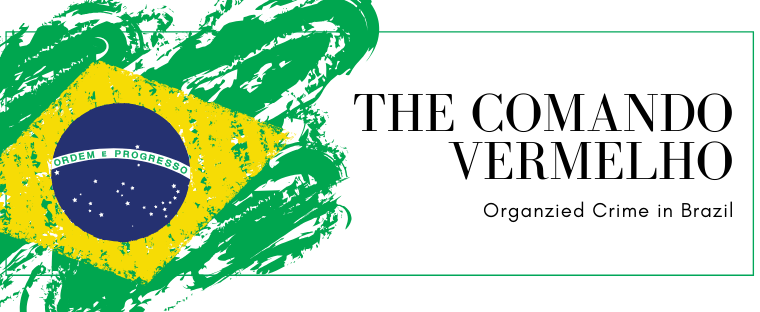Comando Vermelho is a Brazilian criminal organization formed in 1979 under the name “Falange Vermelha” as a kind of alliance between two groups: the common convicts and the leftist militants who, as part of the military dictatorship that lasted between 1964 and 1985, were imprisoned together.
The group changed the name “Falange Vermelha” to “Comando Vermelho” during the first part of the 1980s, and let go of the far-left political ideology that made them unite in the first place. The group is now engaged mostly in drug trafficking and arms, but they are also engaged in their fair share of bank robberies, rioting, loan sharking, money laundering, and so on.
Comando Vermelho is in control of several parts of the famous Rio de Janeiro, which has a population of close to 6 million people. The group had some small-scale conflicts in the early 21st century with Terceiro Comando, a rival gang that actually formed with former members of the Comando Vermelho in the mid-1980s.
Unlike most organized crime groups, this organization is formed from a series of cells that are independent of one another and doesn’t really present a form of hierarchy. Also, there have been some people like Isaias da Costa Rodrigues or Luiz Fernando da Costa that have played major roles in the history of the group.
In June 2007, the Rio police started a large-scale assault on the areas that Comando Vermelho controlled, which left 24 people dead. The power of the group seems to be diminishing as time goes by, though, as, if in 2005 it controlled 53% of the most violent areas of the city, just 3 years later, that number went down to 38.8%.
How do they get new people?
Despite the stories of a lot of members of organized crime, young men continue to be drawn to it, not for other reasons than the fact that it gives them the chance of offering themselves and to their families a better life really fast, especially since many of them don’t have prospects of going further in academia or in their jobs.
The group doesn’t look for people who know a few tips on Mongolian wrestling or how to handle a gun. As long as you are willing to join, they will teach everybody what they need to know. And what better place to find youths if not at sporting events, neighborhood associations, or funk parties, all organized by Commando Vermelho?
These funk parties feature a form of Miami Bass music, where other youths involved in the group try to attract new ones, either to be part of the group or as clients for buying guns and drugs. If one misses one party, that’s not a problem: they are organized every Sunday, aiming to catch any impressionable young Brazilians.
The group further promotes itself through music, as they sponsor funk artists to record songs, or even entire albums, that promote the Comando Vermelho group, and pay tribute to the members of the group who have passed away. As the group doesn’t really lack money, the recorded songs are of high audio quality, a far cry from the bootlegs recorded at home.
This makes those artists highly popular in sales, and, eventually, in airplay, as radio stations fight to stay relevant and play the music that people want to buy and listen to, even if that type of music actually falls under the guidelines that would make it be prohibited otherwise. It starts with pirate radio stations, moving to college radios, and finally to nation-wide radios.
As a result, young people in the area get the idea that Comando Vermelho can help them overcome their financial hardship. For a better understanding of how everything goes, the film “Cidade de Deus” (2002) chronicles the forming of the group in the early 1970s and how easily young people are drawn into it, despite being aware of the dangers.
The film was nominated for four Academy Awards, won a BAFTA, and won 6 awards at the Grande Prêmio do Cinema Brasileiro, from the 16 it was nominated for. Among the titles won were “Best Film”, “Best Director”, and “Best Adapted Screenplay”. It’s also ranked as one of the best films of all time.
- How to Gain More from Filing a Personal Injury Claim - November 18, 2024
- How Jackpot Drops Change Online Casino Dynamics - November 13, 2024
- Inside the Mafia’s Grip on Casino Gaming - November 11, 2024








